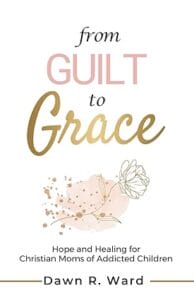As Christian wives, we often feel the weight of responsibility to keep things together: the home, the kids, the faith. And we do it while quietly carrying the grief of watching someone we love slowly self-destruct.
But here’s a truth I want you to hear loud and clear today: you are not responsible for his healing, but you are responsible for your own.
In the middle of this storm, God is inviting you into a different kind of care—soul care.
This isn’t about bubble baths and spa days (though those have their place). This is about tending to your heart, your spirit, and your identity in Christ. It’s about nurturing your connection with the One who sees it all and hasn’t left your side for a second.
So, how do you begin practicing self and soul care when your life feels anything but peaceful?
Soul Care When Your Husband Battles Addiction
Here are some places to start:
1. Permission to Pause
Let’s start here: You are allowed to rest. You’re allowed to set the burdens down and simply be still before God.
Sometimes the most powerful prayer you can pray is, “Lord, I’m tired. Please hold me.”
Carve out small moments in your day where you can breathe deeply and do nothing but be in God’s presence.
This might be while the kids are at school, during your morning coffee, or even locked in the bathroom for five minutes of peace.
These sacred pauses aren’t wasted—they are a lifeline for your weary soul.
He leads me beside quiet waters. He restores my soul.” Psalm 23:2-3
2. Anchor in the Word
When addiction is swirling around you, it’s easy to start doubting everything—including who you are. The enemy would love for you to forget your worth, your strength, and your calling.
But God’s Word tells a different story.
Spend time in Scripture, not as another ‘to-do’, but as a soul anchoring practice.
Choose one verse a day and sit with it. Write it on a sticky note. Whisper it when you feel anxious. Let God’s truth drown out the lies of shame and despair.
Here are a few to cling to:
3. Practice Emotional Honesty
You don’t have to pretend to be okay when you’re not.
Grief, anger, fear, sadness—these emotions are not sin. They are signals. Suppressing them doesn’t make you stronger; it just makes you more exhausted.
It’s okay to bring your full, unedited heart to God. He already knows. Pour it out in a journal, talk to a trusted friend, or cry out in prayer.
God can handle your messy prayers. In fact, He welcomes them.
Pour out your hearts to Him, for God is our refuge.” Psalm 62:8
4. Set Boundaries Without Guilt
Boundaries aren’t punishments; they’re protections. They create space for safety, sanity, and spiritual growth.
It’s okay to say, “I will not engage in conversations when you’re drinking,” or “I will protect our children from your drinking behaviors.” These decisions aren’t selfish—they are wise.
Jesus Himself set boundaries. He withdrew from the crowds. He said “no.” He made time for solitude and rest. And if the Savior of the world needed to do that, so do we.
5. Pursue Community
Addiction thrives in secrecy, and so does shame. So please don’t walk this road alone. Ask God to bring you even just one safe person—a mentor, a friend, a support group, someone who understands the unique heartbreak of being married to an addict.
If you haven’t already, find a Christ-centered community that speaks to both your spiritual and emotional needs. You don’t have to share all the details to be seen and supported. You simply have to show up.
You’re not weak for needing others. You’re human.
6. Surrender the Outcome Daily
This is perhaps the hardest part of all—surrender.
You want healing. You pray for change. You beg God for a breakthrough in your marriage. And yet, day after day, the bottle still seems to win.
Let me say this gently but truthfully: your husband’s recovery is not within your control. But your healing is.
Surrender doesn’t mean giving up hope. It means placing your hope where it belongs—not in your husband’s behavior, but in God’s unchanging character.
It means saying, “Even if nothing changes, I will still trust You, Lord.”
Though the fig tree does not bud… yet I will rejoice in the Lord.” Habakkuk 3:17-18
Dear sister, please know that you are not alone in this. You are not forgotten. And you are not without a Shepherd who sees, knows, and walks beside you.
Practicing self and soul care is not selfish—it’s sacred.
It’s how you stay rooted when the storm rages.
It’s how you remain tender in a world that’s trying to harden you.
And it’s how you begin to heal, one surrendered step at a time.
This is an updated edition of a post originally published on The Faith to Flourish
Featured Image Adobe Stock





















Comments are closed.